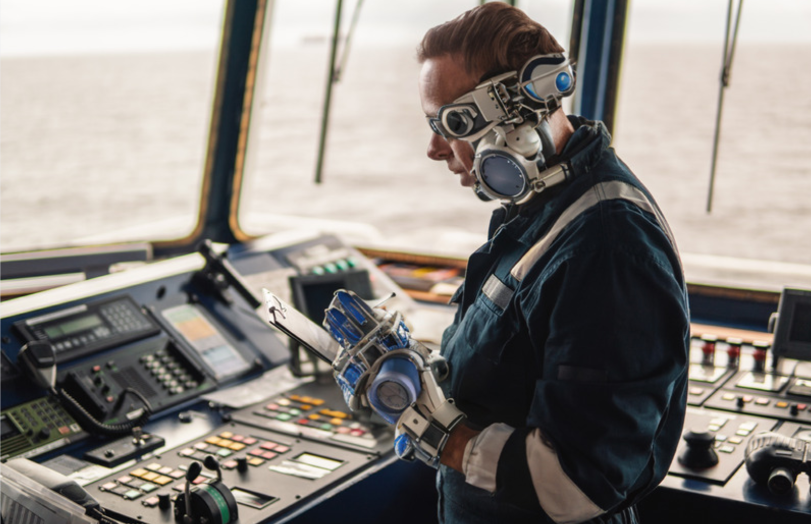One of the most revolutionary technologies of our time, AI has already had a significant impact on many international businesses, including finance, healthcare, and transportation. And it’s not different in the Maritime Industry and Logistics. Chat GPT is one example of an AI-based technology that has the potential to transform the way we think, work, and even interact.
The maritime industry has always been one of the most critical global trade and commerce sectors, playing a crucial role in transporting goods worldwide. Yet, the industry has long used Artificial Intelligence (AI) to enhance operations and decision-making because of the rising expectations for efficiency, safety, and sustainability.
What is Artificial Intelligence?
Artificial intelligence (AI) is the emulation of human intellect by computer systems, including learning, self-correction, and reasoning. Machine learning, natural language processing, and computer vision are just a few techniques that can be used to deploy AI to build systems that can carry out activities that call for human intellect.
How can AI be applied to the Maritime Industry?
AI is already being applied in the marine sector for several purposes, including fleet management, predictive maintenance, cargo optimization, risk management, and supply chain management. And currently helps the development of autonomous ships. These applications can potentially improve efficiency, safety, and profitability in the industry while also reducing the environmental impact of shipping.
Fleet Management and Monitoring
AI can be used to optimize shipping routes by analyzing data from various sources, such as GPS, weather, and traffic. For example, AI can analyze real-time weather data to reroute ships to avoid storms or optimize routes to minimize fuel consumption and reduce emissions.
Predictive Maintenance
AI can predict when equipment and ships will need maintenance, helping reduce downtime and save costs. For instance, AI can analyze sensor data from ship engines to detect patterns that indicate when maintenance is needed, allowing for proactive repairs and preventing unexpected breakdowns.
Autonomous Ships
AI can be used to develop autonomous ships that can navigate, dock, and make decisions on their own, increasing safety and efficiency in the industry. For instance, autonomous ships equipped with AI can analyze real-time data from sensors to adjust their course and speed to avoid collisions with other vessels, rocks, or other obstacles.
Cargo Optimization
AI can be used to optimize cargo loading and unloading, by analyzing data on cargo weight and volume, vessel stability, and port infrastructure. For example, AI can analyze real-time data on cargo volumes and vessel stability to optimize cargo distribution, preventing accidents and increasing efficiency.
Risk Management
AI-based risk management systems can analyze data from various sources to identify and mitigate risks in the shipping industry, such as weather, traffic, and piracy. For instance, AI can analyze real-time data from weather sensors and traffic reports to help ships avoid dangerous weather conditions or high-traffic areas.
Supply Chain Management
AI can help the industry optimize shipping processes, from order management to logistics and inventory management. For example, AI can analyze data on shipping routes, cargo volume, and delivery schedules to optimize the supply chain, reducing delays and increasing efficiency.
Fuel consumption modeling
AI is already contributing a lot to estimating the consumption of vessels. With the improvement of AI technologies, calculating and estimating the consumption of ships in different weather conditions and regions will become more accurate. And will help in choosing more efficient ships and controlling the contractual prerequisites.
The Impact of Artificial Intelligence on the Maritime Industry
While AI has the potential to bring many benefits to the maritime industry, it also raises important questions about the future of work, privacy, and security. For example, the increased automation of shipping operations could lead to job displacement and changes in the nature of work in the industry. AI-based systems also raise concerns about data privacy and cybersecurity, as these systems rely on large amounts of data to operate effectively.
AI can significantly affect decision-making in maritime activity. AI systems can now offer previously unattainable insights by evaluating enormous amounts of data from numerous sources.
Read more: How data can drive decision-making in the maritime?
Data quality and AI
When building and implementing artificial intelligence solutions, the importance of data quality cannot be overstated, especially in the context of safety-critical industries like maritime. The data that is fed into an AI system will shape the way it functions, and in industries where even small errors can have catastrophic consequences, the data being used must be of the highest quality.
AI systems learn from the data they receive, so it is essential to ensure that the data is accurate, relevant, and representative of the problem being solved. Data quality checks are essential to ensure that the data is clean, consistent, and free from errors or biases.
Opsealog invests a lot of time and energy in data quality checks to ensure its solutions are based on the best available data. This is a critical step in building data solutions that are trustworthy and reliable, particularly in the maritime industry, where the stakes are high.
Read more: Maritime Data Quality: The Crucial Ingredient In Achieving Efficiency
Conclusion
It is crucial to consider AI’s ethical, societal, and economic consequences as it continues to revolutionize global companies and how we live and work. While AI has the potential to have many positive effects, it also brings new difficulties and dangers that require careful consideration, regulation, and cooperation. The maritime sector is not an exception to this trend, and to stay competitive and sustainable, it will need to adjust to this new technology.
In conclusion, the development of AI solutions for sectors like the maritime that require a high level of safety must prioritize data quality.
Check out Opsealog Solutions
Image: Igor Kardasov changed via AI

